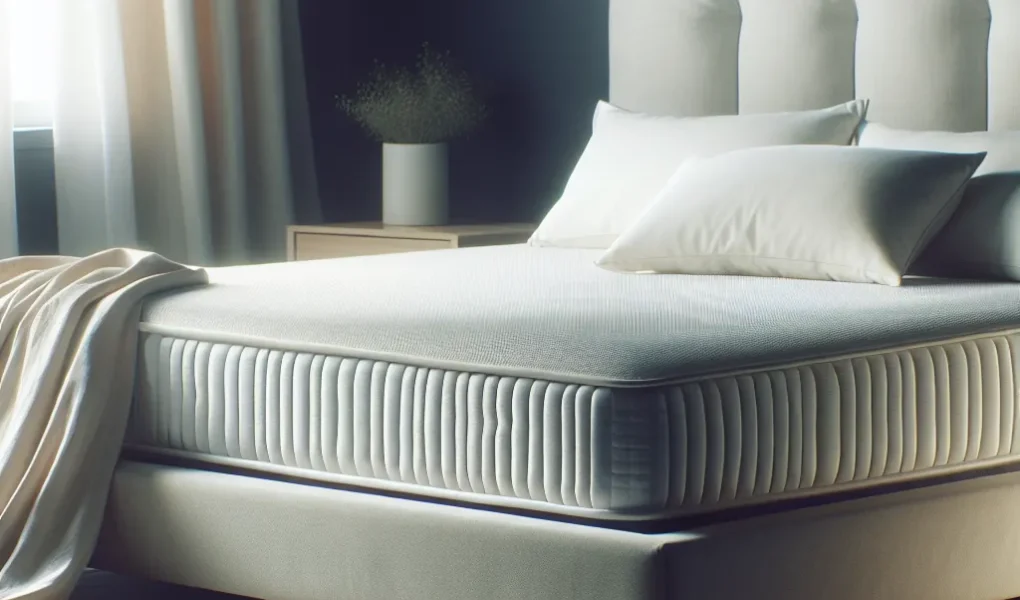The Impact of Mattress Quality on Sleep
Choosing the perfect bed mattress is crucial for obtaining quality sleep and overall well-being. The impact of mattress quality on sleep cannot be overstated, as it directly influences our comfort and restfulness throughout the night. A high-quality mattress provides the necessary support for the body, ensuring proper spinal alignment and reducing aches and pains. It also minimizes motion transfer, allowing for uninterrupted sleep, and promotes airflow to maintain a comfortable sleeping temperature.
Furthermore, the right mattress can significantly alleviate common sleep issues such as insomnia, restless sleep, and morning stiffness. Research has shown that the comfort and support provided by a good mattress can lead to improved sleep quality and duration, ultimately enhancing daytime functioning and productivity. In contrast, a low-quality mattress may result in discomfort, increased stress on pressure points, and disrupted sleep patterns.
Therefore, when considering the science of choosing the perfect bed mattress, it’s essential to prioritize factors such as material quality, firmness level, and individual sleep preferences. Investing in a high-quality mattress tailored to your specific needs can lead to a noticeable improvement in the overall quality of your sleep, contributing to better health and well-being in the long run.
Understanding the Relationship Between Body Support and Mattress Selection
When it comes to choosing the perfect bed mattress, it’s crucial to understand the relationship between body support and mattress selection. A mattress plays a pivotal role in providing the necessary support to different parts of the body, including the spine, hips, and shoulders. The right level of support ensures proper alignment of the spine, which is essential for overall comfort and a restful sleep.
One of the key factors to consider when selecting a mattress is its firmness. The level of firmness required varies from person to person based on their body weight, sleeping position, and personal preference. For instance, individuals with a higher body weight may require a firmer mattress to prevent sinking too deeply, while those who sleep on their sides may benefit from a softer mattress to cushion their shoulders and hips.
In addition to firmness, the type of mattress also influences body support. Memory foam mattresses conform to the body’s shape, providing targeted support and pressure relief, making them suitable for various sleeping positions. On the other hand, latex mattresses offer a responsive and buoyant feel, providing consistent support and promoting natural spinal alignment.
Understanding the relationship between body support and mattress selection is essential for choosing the perfect bed mattress. By considering factors such as firmness and mattress type, individuals can make an informed decision to ensure that their mattress provides optimal support, leading to better sleep quality and overall well-being.
The Role of Material Composition in Mattress Comfort
When it comes to choosing the perfect bed mattress, one of the most important factors to consider is the material composition. The material of a mattress plays a crucial role in determining its level of comfort, support, durability, and overall performance. Different materials offer varied benefits, and understanding their characteristics can help individuals make an informed decision when selecting a mattress.
One of the most common materials used in mattresses is memory foam, which is known for its ability to contour to the body’s shape, providing personalized support and relieving pressure points. This material is particularly favored by individuals who suffer from joint pain or seek enhanced comfort during sleep. On the other hand, latex mattresses are appreciated for their natural resilience and breathability, making them a suitable choice for those who prioritize eco-friendliness and temperature regulation.
Furthermore, innerspring mattresses utilize coil systems to offer support and bounciness, while hybrid mattresses combine various materials such as memory foam, latex, and coils to provide a balanced mix of comfort and support. Each material composition has its unique selling points, and understanding these distinctions can guide consumers towards choosing a mattress that aligns with their specific preferences and requirements.
In conclusion, the material composition of a mattress significantly influences its comfort, support, and overall sleep experience. By considering the characteristics of different materials, individuals can make an informed decision and select a bed mattress that caters to their individual needs, ultimately contributing to improved sleep quality and overall well-being.
Finding the Best Mattress for Your Sleep Needs
When it comes to finding the best mattress for your sleep needs, it’s essential to consider several key factors. The science of choosing the perfect bed mattress involves understanding your individual requirements and preferences. Firstly, it’s crucial to take into account your sleeping position. Whether you sleep on your back, side, or stomach, there are mattresses designed to provide the right level of support and comfort for each position.
Another vital aspect to consider is the firmness of the mattress. This is a personal preference that can impact your quality of sleep. A firmer mattress may be beneficial for those with back pain, as it provides extra support, while a softer mattress can be more comfortable for side sleepers. Additionally, the material of the mattress plays a key role in determining its suitability for your needs. Memory foam mattresses are known for their ability to contour to the body, while innerspring mattresses offer great support and airflow.
Furthermore, consider any specific health conditions or allergies you may have that could influence your choice of mattress material. For individuals with allergies, hypoallergenic and dust mite resistant materials may be preferable. Lastly, don’t forget to take into account the size of the mattress and whether you share the bed with a partner, as this will impact the level of comfort and space needed for a good night’s sleep.
By carefully assessing these factors, you can make an informed decision and select the perfect bed mattress to meet your sleep needs, ultimately ensuring a restful and rejuvenating night’s sleep.



